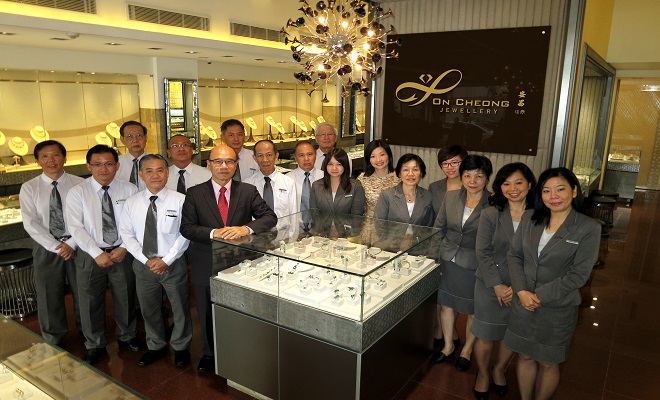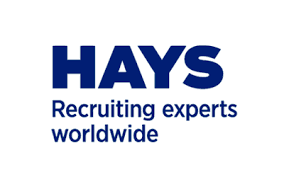
Insights + interviews
An Ageing Workforce Part 5: In Conversation With Charles Ho
We interview Charles Ho Nai Chuen from On Cheong on his thought towards having senior workers in a workplace.
As managing director of On Cheong Jewellery, Charles has been with the company for more than 30 years. A company that has made quite a name for itself in the industry, On Cheong Jewellery is a company that retains employees beyond their retirement age because of their knowledge, reliability and sense of belonging, in fact On Cheong Jewellery was awarded the ‘TAFEP Exemplary Employer Award 2012’ as well as ‘Outstanding Workplace for Mature Employees’ for its fair, responsible and employment practices. We find out more from the man himself on his thoughts on having mature employees.
AA: Hi Mr Ho, thank you for your time. Firstly, what are your personal opinions and thoughts towards having more senior workers in a workplace and what do you think are some advantages senior workers have over the younger ones?
CH: From our observation, companies that employ senior workers as well as retain older ones usually have a more cordial and accepting corporate culture. Mature workers tend to make better employees because of their expertise and knowledge in a particular subject matter. We are not discrediting the younger workers, but older workers are usually more caring and tolerant towards their colleagues. Their experiences also make them good mentors to the younger colleagues and we find that they usually stay on with a company for a long time, as long as it is a conducive environment for them to continue with their passion and career.
AA: Many employers seem to prefer hiring younger workers to older ones these days. Why is there a preference for older workers than younger workers at On Cheong Jewellery and how do you think this has benefited the company as a whole?
CH: On Cheong values all workers regardless of age and we employ and retain candidates as long as they are keen to stay on with the company, can contribute to the company effectively, and have a clean bill of health. In fact many of our older employees have stayed on with us through the years and we retain them because of their wealth of experience in our industry. At On Cheong, we believe that a multi-generational workforce will benefit all employees as there is much to learn from one another – employees can play a complementary role to each others strengths and weaknesses. Currently, older workers make up about 75% of On Cheong’s workforce and the average length of service at On Cheong is about 10 years and above. Mr Chan Woon Chee is one of our oldest employees and he has been with the company for more than 68 years.
AA: In what ways do you think other companies could change their attitudes towards hiring senior workers and being open to hiring them? Do you think this is dependent on the type of industry involved?
CH: Companies should abstain from jumping the gun and refrain from developing preconceived notions that senior workers are weak, slow, stubborn, old-fashioned. The management should first assess them based on skills, abilities, flexibility and agility in workplace. That said, there are definitely certain industries that require workers to be physically strong and these job requirements might mean that companies are more hesitant to employ senior workers due to the strenuous nature of the job. This is where a multi-generational workforce comes into play, where companies can consider how to tap on the experience of older workers beyond their physical capabilities.
AA: How do you manage to look beyond certain stereotypes whereby senior workers are perceived as being physically weaker or slower, and welcome them as part of your team? And What are some incentives the company offers that encourage them to continue working at On Cheong Jewellery?
CH: We believe that as an employer, we should look beyond an older worker’s physical abilities and retain workers with excellent quality in service and thinking. I honestly think, as a company we need to evaluate and assess workers based on merit and take the time to discover their strengths and play to them, so that their full potential can be realised. This is particularly true for senior workers in the service industry where positive customer interaction is of utmost importance. In the case where employers recognise a valuable employee who is an asset to the company, they should look beyond the workers’ physical ability and, as much as possible, help them meet their needs. Without compromising business objectives and the company’s interest, management could offer them flexi working hours or shorter working weeks.
AA: Are there certain challenges you face from having a generally older team and how do you overcome them?
CH: We do face some challenges in our day-to-day operations as we need to be mindful of their health conditions, thus we make a conscious effort to help them in their tasks as well as having their younger colleagues help them with more physically demanding chores.
AA: What are some things On Cheong Jewellery has done to make it a senior-friendly working environment? What are certain qualities that senior workers look for in their working environment before they decide to stay on?
CH: All our store rooms are located on the ground floor so that senior workers are not required to climb up the stairs. As mentioned, we make sure that all strenuous duties are performed by younger staff so that we can minimise accidents or mishaps. Senior workers usually like working in an environment where they are respected as seniors and mentors. We need to create a space where older workers can apply their skills acquired through their working experiences, so we typically put them in a mentorship position where they can pass their knowledge on to the younger generation.
AA: Besides having a large proportion of seniors working for On Cheong Jewellery, do you think there is a need to balance out the proportion of senior workers and younger workers in your company and do you think this is an important factor for other companies seeking to be an efficient team?
CH: As mentioned earlier, we think that diversity is good for the company and a multi-generational workforce is beneficial for all employees. As a good HR practice, employees should be assessed and evaluated based on their abilities regardless of their age. All employees should also work hard and strive to achieve the best possible outcomes for the company. Companies should also reward employees accordingly. Positive affirmations go a long way to boost employee morale and retain valuable employees.
AA: Thank you so much for your time Mr Ho.
CH: You’re most welcomed.
Read Part 1 here.
Read Part 2 here.
Read Part 3 here.
Read Part 4 here.









